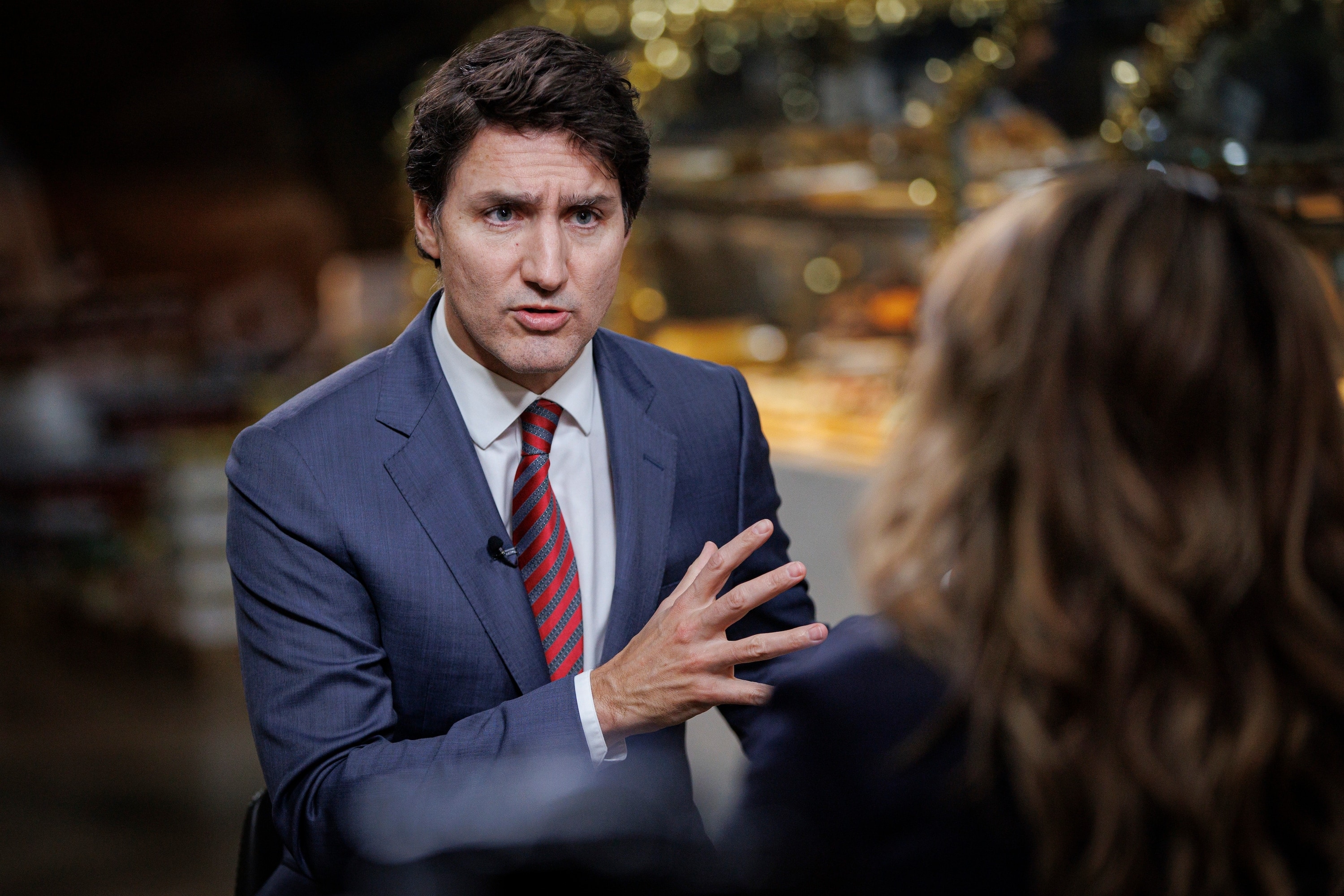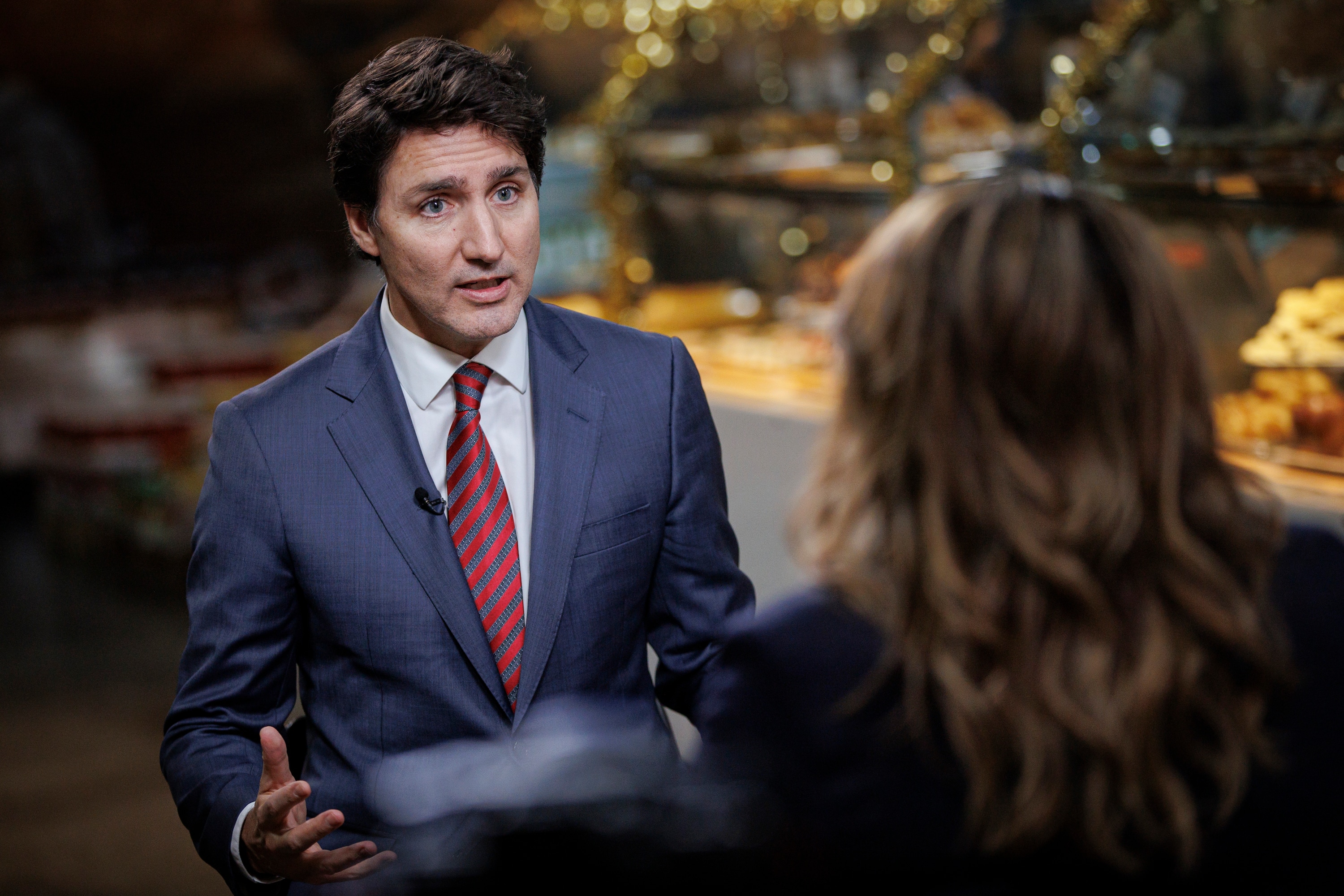
As the calendar counts down the final days of December, Canadians are taking time to reflect on the past year — and Prime Minister Justin Trudeau is no exception.
In a year-end interview with CBC News Chief Political Correspondent Rosemary Barton, Prime Minister Justin Trudeau touched on a number of topics that have been top-of-mind for Canadians over 2022.
The full interview will air on CBC television on Sunday at 11:30 a.m.
Here are five key subjects the prime minister discussed.
Prime Minister Justin Trudeau sits down with CBC News Chief Political Correspondent Rosemary Barton for a year-end interview.
The Emergencies Act
Trudeau’s government invoked the Emergencies Act on Feb. 14 for the first time in the law’s 34-year history to address protests against COVID-19 restrictions in Ottawa and at a number of Canada’s border crossings.
At that point, protesters who were part of the self-styled Freedom Convoy had for weeks gridlocked downtown Ottawa and later began blocking border crossings, snarling key trade routes as a result.
The invocation of the act (which was revoked a little over a week later) gave the federal government temporary powers to deal with the protests — but it also drew much criticism from protesters, opposition politicians and civil liberty advocates.
Barton asked Trudeau if he thought the country had suffered any long-term damage because of its invocation.
“It did, in a very limited way, the job that it was brought in to do,” Trudeau replied.
“Nobody got seriously injured, nobody had any lasting effects from it and it cleared the situation.”
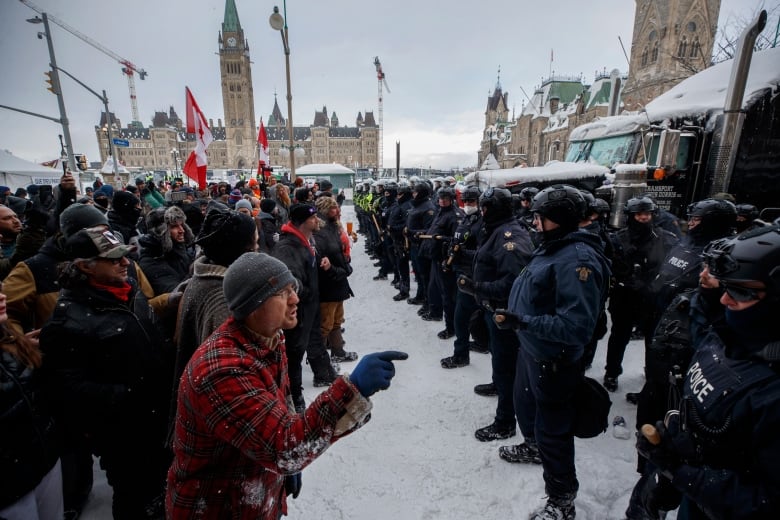
After weeks of hearings that started in October, the Public Order Emergency Commission is currently weighing whether the use of the act was justified. Its report to Parliament is due by next February.
“It’s unfortunate we had to use it. I didn’t want to use the Emergencies Act,” Trudeau told Barton. “But when we got to that point, as I said in the commission, it was one of the only tools left.”
Trudeau said he’s looking forward to the commission’s recommendations on how similar situations could be addressed in the future.
Restricting firearms
Trudeau’s government has come under fire in recent months over a controversial amendment to its proposed gun legislation, Bill C-21.
The bill initially was meant to ban handguns, but an amendment tacked on in committee would expand the list of prohibited weapons to include some hunting rifles.
Trudeau and his cabinet have insisted they aren’t targeting hunters with this legislation. But in his interview with Barton, Trudeau said some hunting rifles would be prohibited under the new law if it’s passed.

“I’ll be entirely honest. There are some guns out there — not many, but some — that hunters are now using for hunting that are overpowered or have characteristics that make them assault-style weapons,” he said.
The prime minister said the legislation isn’t meant to criminalize those hunters and insisted there would be a buy-back program for guns that fall under the scope of the bill.
The war in Ukraine
As Russia began its invasion of Ukraine, Canada and other western allies began offering aid to support the Ukrainian military and began accepting refugees as millions began fleeing the country.
Russia suffered a significant number of key losses in recent months but has stepped up missile strikes on Ukrainian civilian infrastructure.
Western allies have discussed a new Marshall Plan-style aid package for Ukriane — a massive injection of foreign capital to fund the country’s post-war recovery. Barton asked Trudeau how Canada would be involved in reconstruction. He said Canada would look for ways to participate but insisted Ukraine ultimately would be in charge.
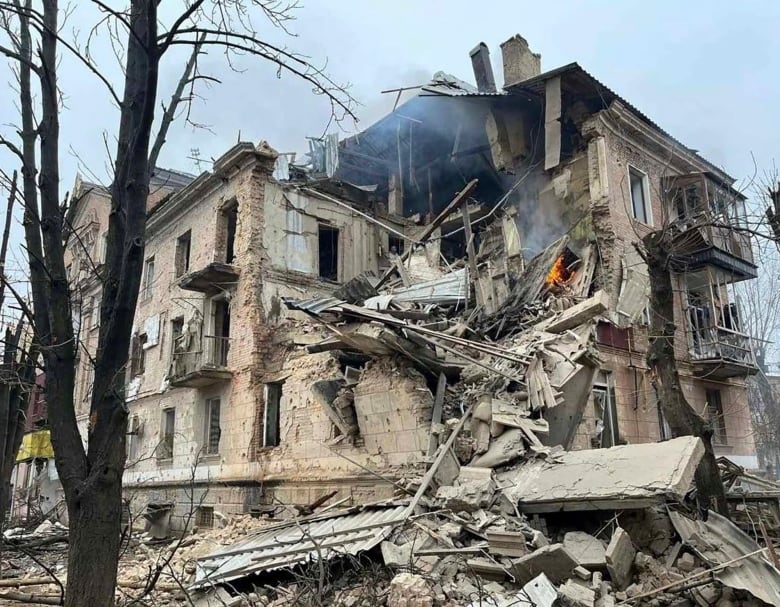
“Canada’s absolutely going to be part of reconstruction, but we know that Ukraine needs to be at the centre of it,” he said. “They need to be driving it.”
Trudeau said the fact that the war has gone on this long shows Russia grossly underestimated its neighbour. He also said Ukrainians who have come to Canada and wish to make it their permanent home are welcome to do so.
“Many of them want to stay. They will be welcomed and continue to be extraordinary Canadians and proud Ukrainians at the same time,” he said.
The economy
Canadians took a hit to their pocketbooks over 2022 due to increases in the cost of living on a scale not seen in decades.
While inflation has begun to ease off, the prices of some necessities — such as groceries — are still rising.
Statistics Canada reports that the annual food inflation rate hit 11.4 per cent last month, up from 11 per cent in October. Gasoline prices declined by 3.6 per cent but are still up 13.7 per cent compared to where they were a year ago.
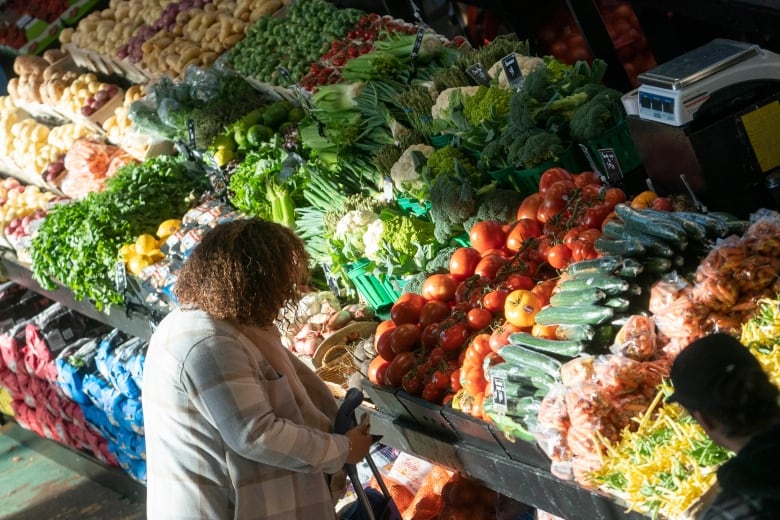
The NDP has been calling on the federal government to impose a windfall tax on the oil and gas sectors and on grocery store chains — businesses party leader Jagmeet Singh has accused of engaging in “greedflation.”
But Trudeau dismissed that idea as “simplistic.”
“The last thing we want to do is put on a tax that people then just pass along to the consumers,” Trudeau said.
Trudeau also defended the Bank of Canada’s interest rate hikes. The Bank of Canada raised its benchmark interest rate by 50 basis points early this month, to 4.25 per cent, in an effort to bring down inflation.
The bank has taken its rate from functionally zero to its highest point since 2008 — its fastest pace of rate hikes since inflation targeting began in the 1990s. Those rate hikes have contributed to a rise in mortgage rates and the cost of servicing other loans.
“In Canada we have strong institutions and the Bank of Canada acts independently in a way that it thinks is best for Canadians. And we respect that,” Trudeau said.
Working with the provinces
New Alberta Premier Danielle Smith last month tabled the Sovereignty Act. It outlines how the province intends to refuse to enforce federal legislation, policies or programs it decides are “harmful” to Alberta’s interests or infringe upon the division of powers in the Constitution.
While experts say the legislation is unconstitutional, Trudeau has attempted to distance himself from the act, saying at one point he wasn’t “looking for a fight” with Alberta.
During his interview with CBC, Trudeau insisted he can find common ground with Smith on certain topics.
“There’s lots of things that we can work on,” he said.
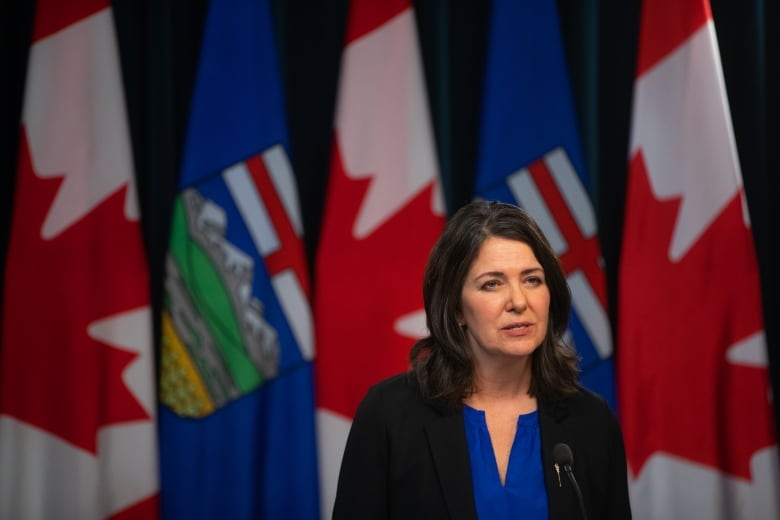
“I certainly think that moving forward on reaching a deal in health care is something that she’s interested in,” Trudeau said when Barton pushed him to pick a specific policy.
But the state of health care remains a sticking point with Alberta and the rest of the provinces.
Ottawa and the provinces agree the country’s health system is facing a crisis. But when health ministers met in Vancouver last month to hammer out a deal, a disagreement over funding prevented any progress.
The provinces have been calling on the federal government to boost its share of health-care funding. But Ottawa insists it won’t offer up any cash until the provinces agree to meet certain conditions — such as increasing access to family health services.
WATCH | Trudeau wants assurances that federal money will improve health services:
In a year-end interview with CBC News chief political correspondent Rosemary Barton, Prime Minister Justin Trudeau says any increase in federal health-care funding to the provinces has to come with strings attached to ensure the additional dollars go toward measurable, improved outcomes for Canadians.
“If I were to send people all the money they need in the provinces, there is no guarantee that … folks would be waiting less time in the hospitals,” Trudeau said. “There is no point putting more money into a broken system.”
The impasse comes as many health-care facilities, particularly children’s hospitals, struggle with a shortage of staff and overwhelming demand due to a combination of COVID-19, influenza and respiratory infections.
Quebec Premier Francois Legault said he is more confident after meeting the prime minister Tuesday that the premiers and the federal government can arrive at a health-care deal for long-term increased funding.
“I really sensed there was a desire there to move forward on that issue,” Legault said. “I think we’re moving in the right direction.”
